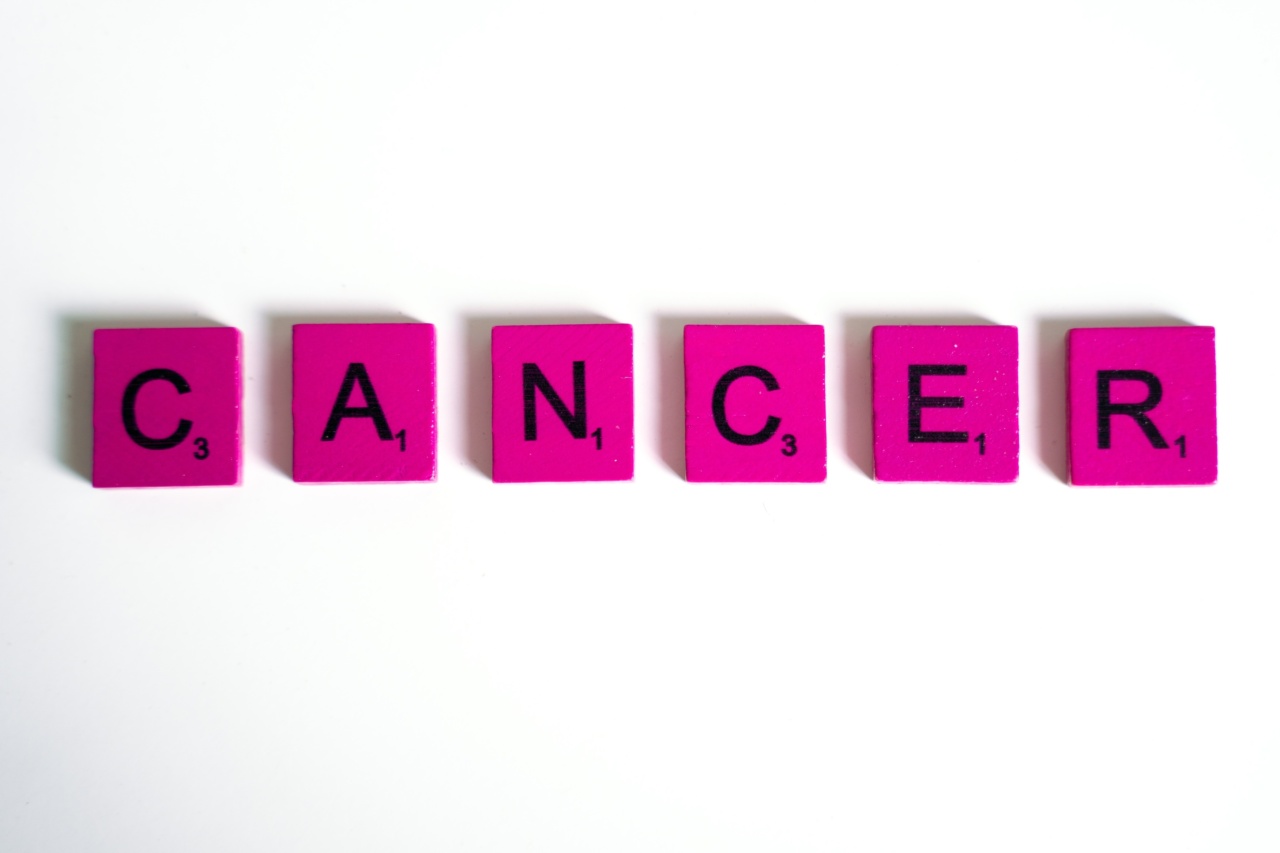Cancer is a serious and deadly disease that can often go undetected until it has advanced to a late stage. This is why it is important to be aware of the subtle signs of cancer that are commonly overlooked.
Early detection is key to increasing the chances of successful treatment. Here are 15 subtle signs of cancer that you should not ignore:.
1. Fatigue
Feeling unusually tired or weak all the time could be a sign of cancer. It is a common symptom of many different types of cancer, including leukemia, colon cancer, and pancreatic cancer.
Fatigue may be caused by cancer cells using up the body’s energy or causing anemia.
2. Unexplained weight loss
Weight loss without trying could be a warning sign of cancer. This could be caused by a decrease in appetite, changes in metabolism, or cancer cells using up the body’s energy.
Unintentional weight loss of 10 pounds or more may be a sign of cancer, particularly lung, pancreatic, stomach, or esophageal cancer.
3. Changes in the skin
Changes in the skin, such as darkening, yellowing, or redness, could be a sign of skin cancer or other types of cancer. Skin cancer is the most common type of cancer, and early detection is important for successful treatment.
4. Chronic pain
Chronic pain that lasts for longer than a month could be a sign of cancer. This includes persistent headaches, back pain, stomach pain, or pain in other areas of the body.
Pain is often a symptom of advanced cancer, but it is still important to seek medical attention if you experience any type of chronic pain.
5. Changes in bowel or bladder habits
Changes in bowel or bladder habits, such as diarrhea, constipation, or blood in the urine could be a warning sign of cancer.
These symptoms are often associated with colon, bladder, or prostate cancer, and early detection is key to successful treatment.
6. Difficulty swallowing
Difficulty swallowing, also known as dysphagia, could be a sign of esophageal cancer. This type of cancer is often difficult to detect, but symptoms, such as difficulty swallowing, chest pain, or indigestion, should not be ignored.
7. Bleeding
Bleeding from any part of the body, including the mouth, rectum, or vagina could be a sign of cancer. This includes blood in the urine, stool, or vomit. Any unexplained bleeding should be checked by a healthcare professional.
8. Changes in the breasts
Changes in the breasts, including lumps, swelling, pain, or discharge, could be a sign of breast cancer. It is important for women to perform self-exams regularly and to have mammograms and breast exams as recommended by their healthcare provider.
9. Cough or hoarseness
A persistent cough or hoarseness could be a sign of lung cancer or throat cancer. These symptoms are often ignored or attributed to allergies or a cold, but if they persist for more than a few weeks, it is important to seek medical attention.
10. Unusual bleeding or discharge
Unusual bleeding or discharge from the vagina could be a sign of cervical, ovarian, or uterine cancer. These symptoms should not be ignored, and women should have regular pelvic exams and pap tests as recommended by their healthcare provider.
11. Swelling or lumps
Swelling or lumps in any part of the body, including the neck, armpit, or groin could be a sign of cancer. These symptoms are often associated with lymphoma or leukemia, but they could also be a sign of other types of cancer.
12. Night sweats
Night sweats, or excessive sweating at night, could be a sign of lymphoma. This type of cancer is often associated with other symptoms, such as fatigue, fever, and weight loss.
13. Indigestion or stomach pain
Indigestion or stomach pain that does not go away could be a sign of stomach, pancreatic, or colon cancer.
These symptoms are often overlooked or attributed to acid reflux, but if they persist for more than a few weeks, it is important to seek medical attention.
14. Changes in vision
Changes in vision, such as blurriness or double vision, could be a sign of brain cancer or other types of cancer. These symptoms may be accompanied by headaches and should not be ignored.
15. Difficulty breathing
Difficulty breathing or shortness of breath could be a sign of lung cancer or other types of cancer that have spread to the lungs. It is important to seek medical attention if you experience any type of respiratory symptoms.
If you experience any of these symptoms, it is important to seek medical attention as soon as possible. Early detection is key to successful treatment and increasing the chances of survival. Don’t ignore subtle signs of cancer.




























